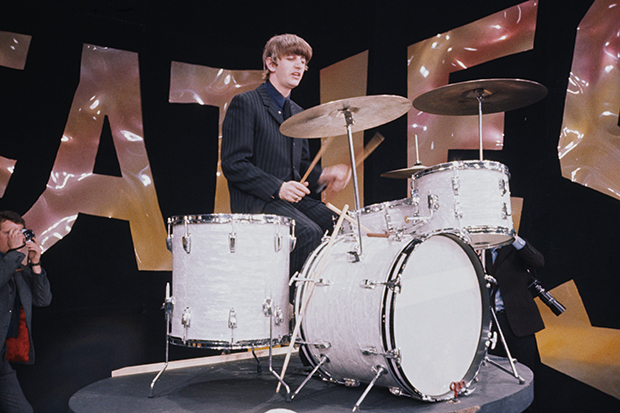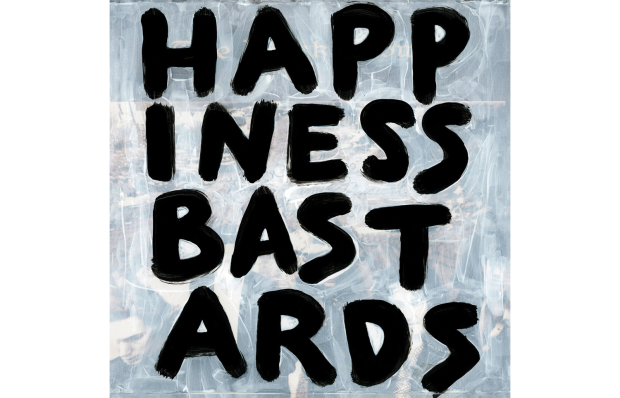It’s rare that I see a piece about music that makes me want to cheer from the rafters and shake the perpetrator by the hand, but one such appeared in these pages last week on the subject of Ringo Starr, 75 this week. James Woodall, who may or may not be a Beatles tragic of the first water, argued that Ringo was a genius and that the Beatles were lucky to have him. True Beatles fans know this to be true and are enraged when anyone suggests otherwise. For years an urban myth had it that John Lennon, when asked if Ringo was the best drummer around, said that he wasn’t even the best drummer in the Beatles. But as Woodall reported, Lennon never said this. Jasper Carrott did, in 1983. Carrott was never actually a member of the Beatles as I understand it, although his song ‘Funky Moped’ did reach number five in the UK charts 40 years ago next month.
Drummers are perennially underrated. Other musicians make drummer jokes. Some writers make rock critic jokes. How many rock critics does it take to change a light bulb? None: they like working in the dark. What do you say to a drummer in a three-piece suit? ‘Will the defendant please rise.’ For a while, in the 1980s and 1990s, it looked as though drummers would soon be out of a job. All but replaced in the studio by machines, they could only argue that machines sound like machines, and wait for everyone else to notice and start employing them again. Drum machines responded by becoming even more artful and complicated, like Arnold Schwarzenegger in the Terminator films. My friend Phil, who has been drumming professionally for 30 years, would listen to the latest apparently unplayable drum figure someone had created on a computer, and become determined to master it. In so doing, he could give groove and feel to even the driest combination of moves. Nothing beats a human being. Nothing beats a drum like a human being.
Happily, we are past the worst of the 1990s, when albums were routinely blighted by the ugliness of their percussion. Dance music is lost for ever, but that need not worry us, for drummers must have been very bored having to play that stuff. But the more real and the more human the music, the greater the need for a real drummer. Kate Bush, a keen exponent of the electronic drum sound in the late 1980s and 1990s, now prefers the delicacy and control of the American sessioneer Steve Gadd, who won’t be coming cheap. Would Fleetwood Mac have gone anywhere at all without Mick Fleetwood behind the kit? My favourite band Steely Dan have long used an incredibly nifty jazz drummer called Keith Carlock, but for his most recent solo record Donald Fagen preferred the more rudimentary drumming of his multi-instrumentalist co-producer Michael Leonhart. The result, to my unbiased ears, was his dullest recording in a long time. Apparently Carlock was restored to duty on the subsequent tour, and the songs began to breathe again.
Fagen and his Steely Dan confrere Walter Becker, of course, were famous for using a huge number of session musicians on their albums, usually the very best New York and LA had to offer. On 1977’s Aja, for instance, they used six different drummers on seven tracks, with only the legendary Bernard ‘Pretty’ Purdie being called back for another go. My drumming friend Phil, who knows a thing or two, says that each one absolutely inhabits the track he plays on: inhabits it, forms it, shapes it. With untutored ears like mine, all you hear is: this is right. Becker and Fagen were only ever waiting for musicians to play what they already heard in their heads, which would explain why their recordings took for ever and cost more than several bands’ cocaine budget.
Ringo, it always seemed to me, performed a similar role in the Beatles. Let’s not forget that when George Martin first heard them, he instantly identified their drummer Pete Best as the weak link and persuaded the others that he had to go. Ringo, with his experience, talent and adaptability, completed the picture. Congratulations to him for reaching 75. And congratulations to me for not using the word ‘skinsman’ in these 700 or so words, despite almost unbearable temptation. Unless you count that mention just there, which I choose not to.
Got something to add? Join the discussion and comment below.
Get 10 issues for just $10
Subscribe to The Spectator Australia today for the next 10 magazine issues, plus full online access, for just $10.
You might disagree with half of it, but you’ll enjoy reading all of it. Try your first month for free, then just $2 a week for the remainder of your first year.














Comments
Don't miss out
Join the conversation with other Spectator Australia readers. Subscribe to leave a comment.
SUBSCRIBEAlready a subscriber? Log in